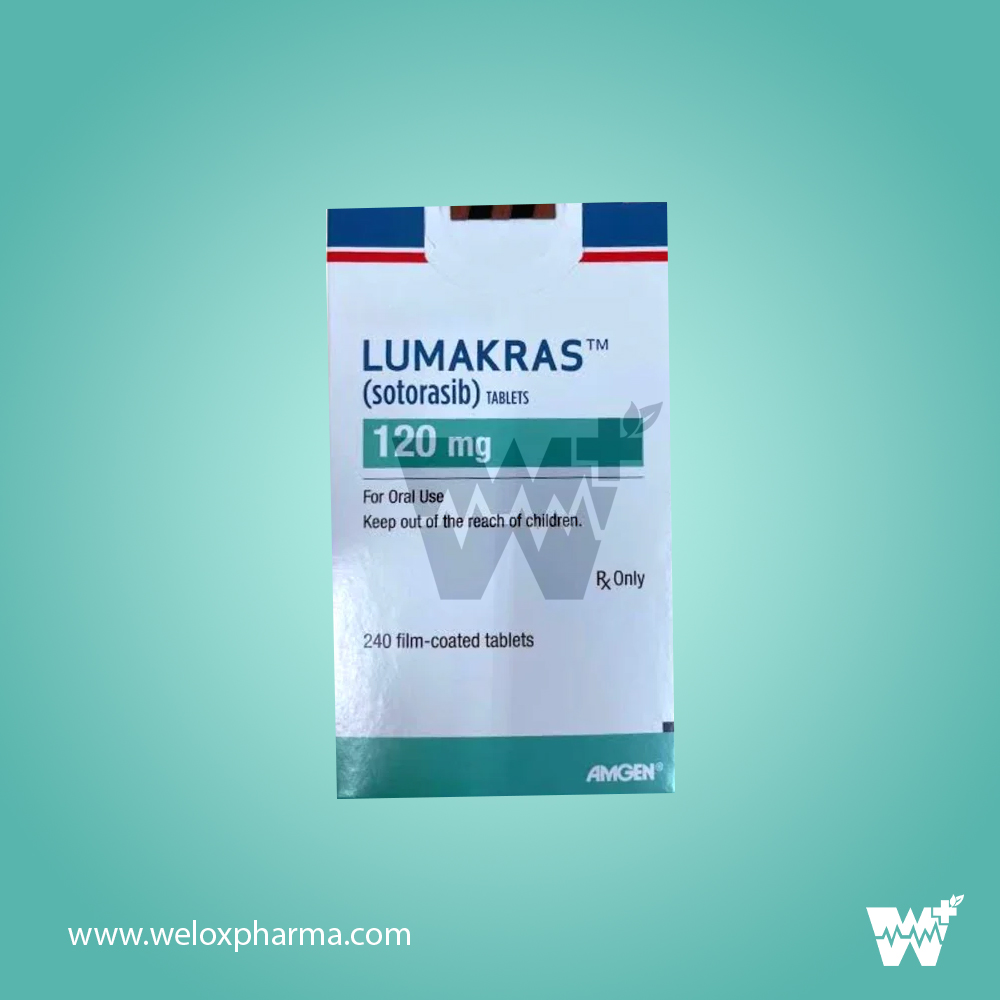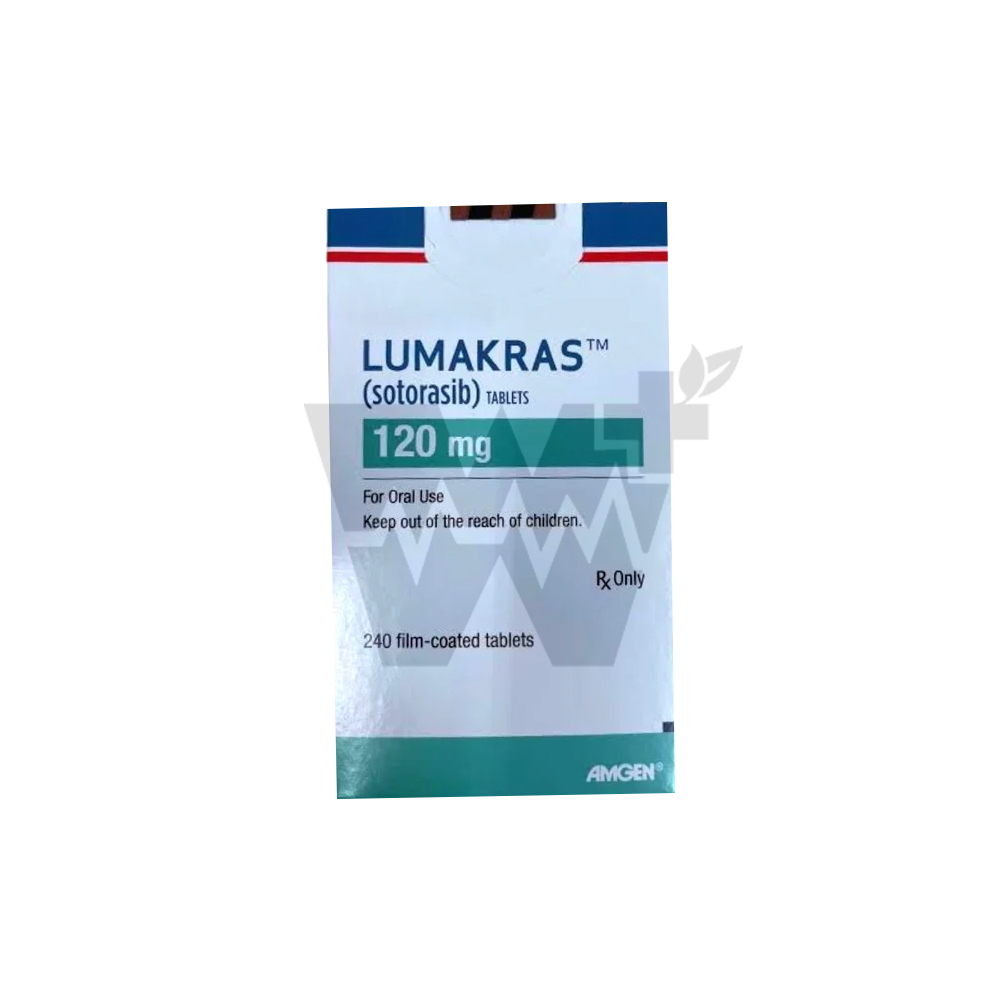



Introduction of Lumakras 120mg tablets:
Lumakras 120mg tablet (Sotorasib) is a medication utilized in the treatment of non-small cell lung cancer (NSCLC) characterized by a specific genetic mutation known as KRAS G12C. It represents a targeted therapy aimed at cancer cells harboring this mutation. Here's a comprehensive overview of its introduction, mechanism of action, uses, and side effects:
Mechanism of Action of Lumakras 120mg tablets:
The KRAS gene is pivotal in cell signaling pathways that govern cell growth and division. In NSCLC cases featuring the KRAS G12C mutation, this gene undergoes alteration, leading to uncontrolled cell proliferation and tumor development. Lumakras 120mg tablet (Sotorasib) functions by irreversibly binding to the mutant KRAS protein, obstructing its activity and impeding downstream signaling pathways conducive to cancer cell proliferation.
Uses of Lumakras 120mg tablets:
Lumakras 120mg tablet (Sotorasib) is specifically sanctioned for treating adult patients with locally advanced or metastatic NSCLC carrying the KRAS G12C mutation, as identified through an FDA-approved test. It is typically prescribed when the cancer has progressed or is inoperable. It's noteworthy that Lumakras 120mg tablet (Sotorasib) is effective solely in patients with the KRAS G12C mutation and may not be suitable for individuals with other lung cancer types or genetic mutations.
Side Effects of Lumakras 120mg tablets:
As with any medication, Lumakras 120mg tablet (Sotorasib) may induce side effects. Common adverse effects may encompass diarrhea, nausea, fatigue, cough, musculoskeletal pain, liver enzyme abnormalities, edema (swelling), and rash. Less frequent but potentially severe side effects may include interstitial lung disease (ILD), leading to respiratory difficulties and pulmonary toxicity. It's imperative to promptly inform your healthcare provider of any encountered side effects while undergoing treatment with Lumakras 120mg tablet (Sotorasib).